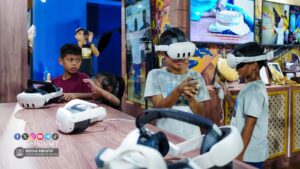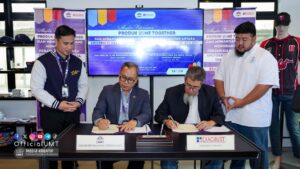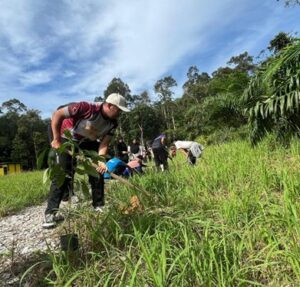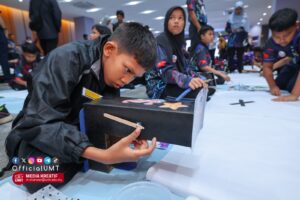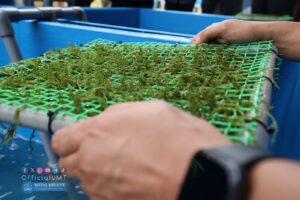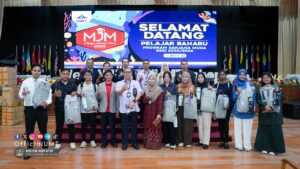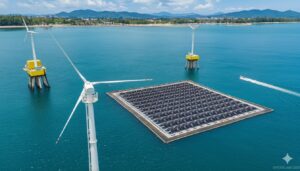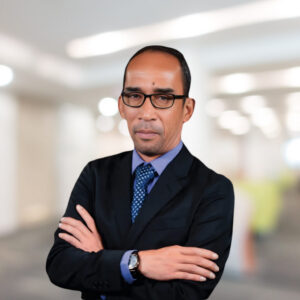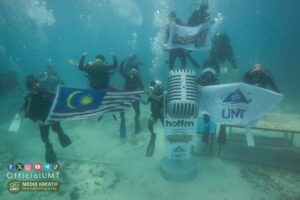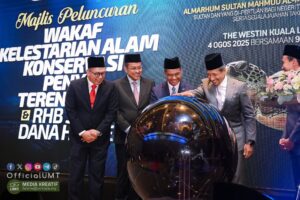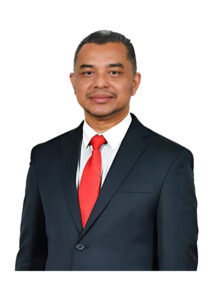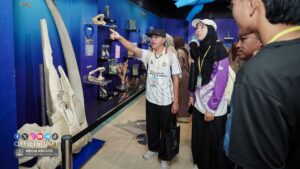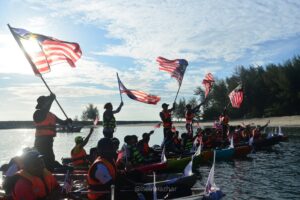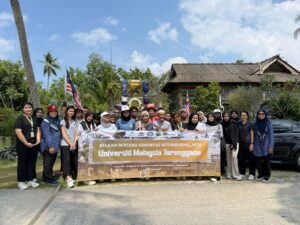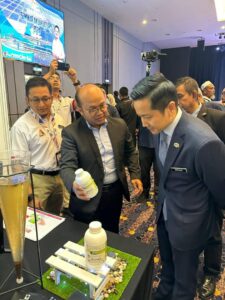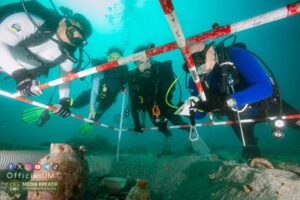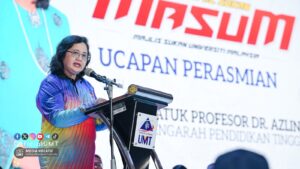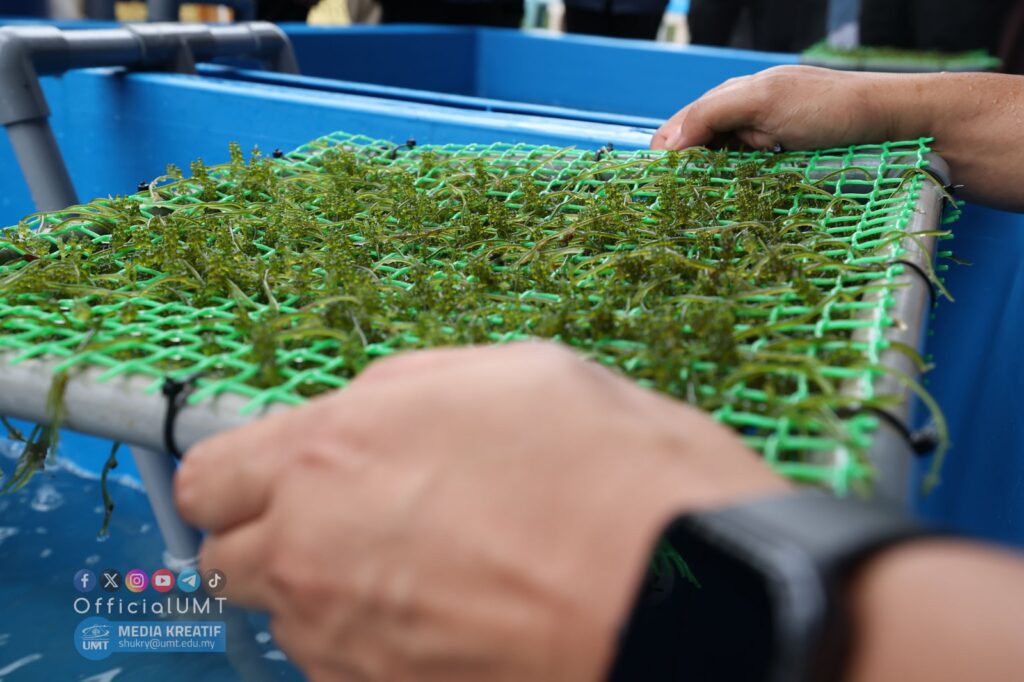
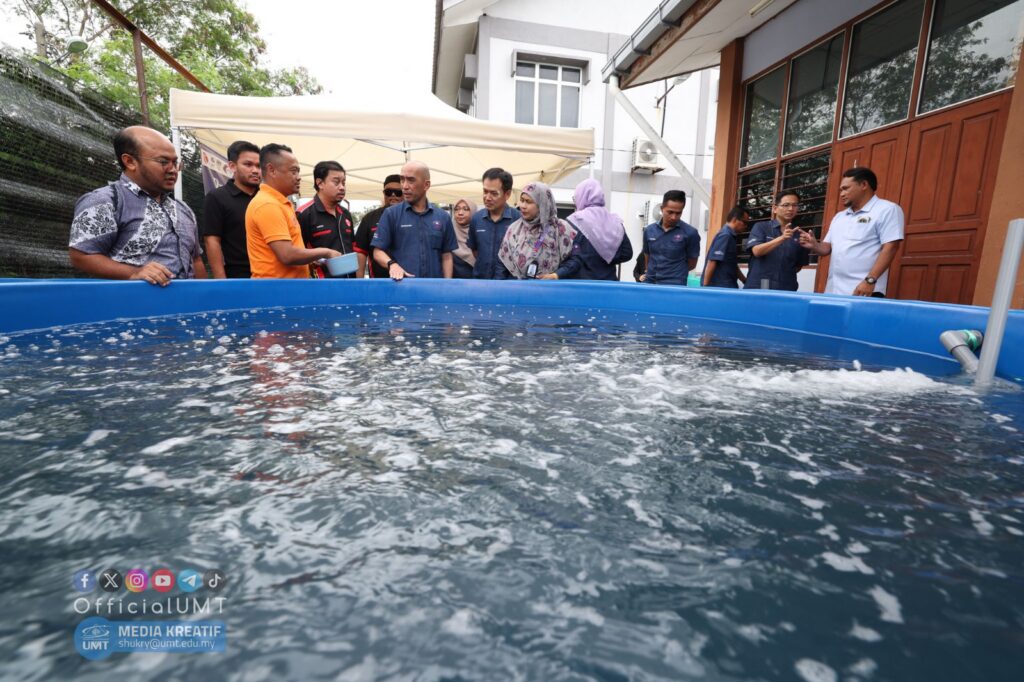
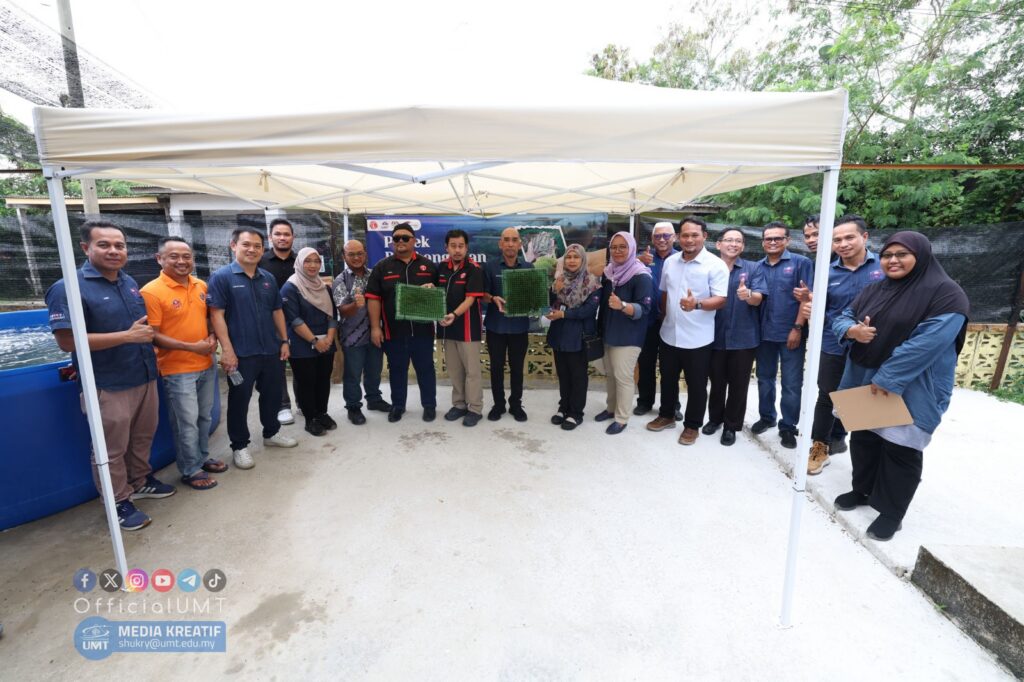
UMT EMPOWERS VISUALLY IMPAIRED COMMUNITY THROUGH MARINE AQUAPONICS PROJECT
Monday, 06/10/2025
Share This Article :
Kuala Terengganu, 4 October 2025 – Universiti Malaysia Terengganu (UMT) continues to demonstrate its commitment as a university for society with the launch of the Marine Aquaponics Polyculture Development Project for Additional Income Generation, specifically aimed at empowering the visually impaired community in Terengganu.
The launch ceremony and knowledge transfer workshop were held at the Malaysian Association for the Blind (SBM) Terengganu Branch in Teluk Ketapang, Seberang Takir.
The project is led by Ts. Dr. Wan Adibah Wan Mahari from the Institute of Tropical Aquaculture and Fisheries (AKUATROP), UMT, and involves 30 SBM members with varying levels of visual impairment.
This initiative is part of the Community Empowerment Programme of Public Universities, Komuniti@UniMADANI, with RM100,000 allocation from Malaysia Ministry of Finance. It is carried out through close collaboration between UMT, SBM Terengganu, the Department of Fisheries Malaysia (DOF), and SS Energy Aquaculture as the strategic industry partner.
Professor Dr. Muhammad Ikhwanuddin bin Abdullah, Deputy Vice-Chancellor (Research and Innovation), emphasized that this project reflects the university’s inclusive approach in empowering local communities through knowledge and innovation, in line with the Malaysia MADANI values that promote balanced human and societal development.
“UMT believes that research should not remain confined within the ivory tower. It must be translated into real benefits for society, especially for vulnerable communities such as the visually impaired,” he said.
He added that the success of this project shows that AKUATROP’s research goes beyond academic boundaries, being effectively adapted for community use through knowledge transfer that creates direct social impact.
The project introduces a marine aquaponics polyculture system, combining shrimp cultivation with the farming of Latok seaweed (Caulerpa lentillifera) in a closed, interdependent ecological system. This sustainable technology utilizes recycled water and eliminates pollution.
Previously, the SBM Terengganu community operated a freshwater aquaponics system. With UMT’s guidance, they have now transitioned to a marine-based system to enhance product diversity and economic value.
According to Ts. Dr. Wan Adibah, the new system enables dual income generation — producing shrimp as live bait and seaweed as a high-value exotic food product.
“This polyculture concept allows natural water recycling. The shrimp and seaweed coexist symbiotically, creating a sustainable and environmentally friendly system,” she explained.
Teluk Ketapang was chosen as the project site due to its strategic location near UMT’s campus, its proximity to the sea, and easy accessibility for researchers and participants. The area also attracts anglers seeking live shrimp bait, providing an immediate market for the project participants.
Participants undergo both theoretical and hands-on training using touch- and sound-friendly modules. UMT also plans to publish an operational manual in Braille, making the project a national model for other visually impaired communities.
The collaboration with DOF and SS Energy Aquaculture adds further value to the initiative. DOF supports the development of seaweed-based downstream products, while SS Energy serves as an industry advisor on system design and operational management.
This partnership exemplifies the University-Agency-Industry-Community (UAIC) model, which underpins the UniMADANI initiative.
The two main products from the project, live bait shrimp and Latok seaweed, have high market potential. Live shrimps are sold at RM0.70 to RM1.00 per piece, while Latok seaweed can fetch up to RM50 per kilogram, depending on quality and season.
Initial results show that each participant group can earn an additional income of RM920 to RM1,100 per cycle, equivalent to an average of RM270 per month per participant. Overall, the project is expected to generate around RM7,000 to RM8,000 per full cycle.
In her closing remarks, Prof. Ts. Dr. Noor Maizura binti Mohamad Noor highlighted that the success of this project goes beyond the concept of corporate social responsibility (CSR).
“This is the true outcome when university research is translated into community development. We are not merely offering assistance, we are bringing knowledge and technology directly to the people,” she said.
The success of this Marine Aquaponics Project once again proves that universities play a crucial role in transferring knowledge and technology to improve the quality of life of local communities, especially vulnerable groups such as the visually impaired.
UMT will continue to expand such initiatives under the ‘University for Society’ agenda, in line with the Malaysia MADANI principles that emphasize social well-being, inclusivity, and sustainability.
Published by:
Corporate Communications Office
Universiti Malaysia Terengganu
4 October 2025

